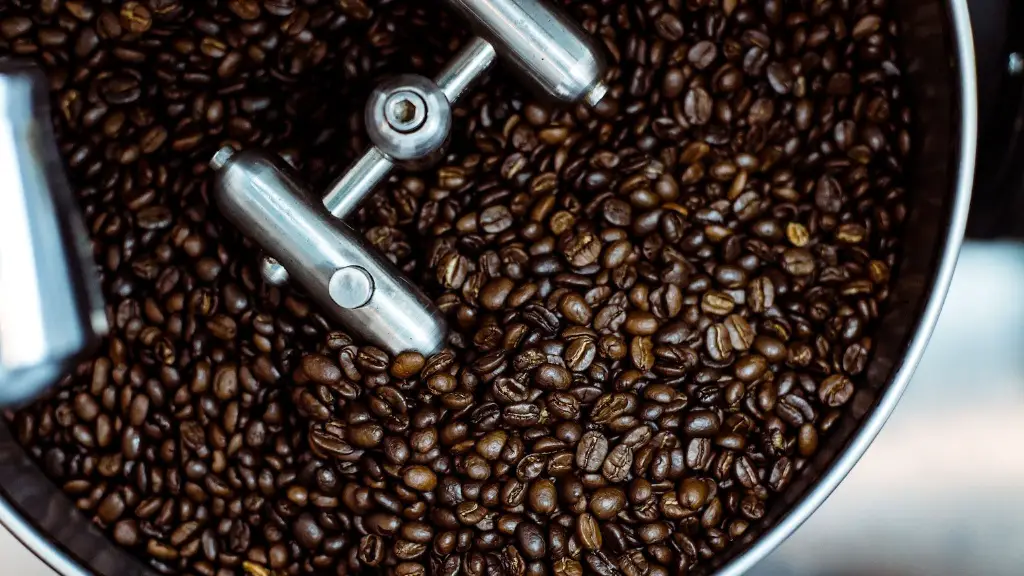Drinking coffee is one of the most popular lifestyle habits around the world. According to a report by the International Coffee Organization (ICO), the global coffee industry produces over 10 million tons of coffee beans each year. Moreover, it is estimated that around 2.25 billion cups of coffee are consumed around the world every single day.
There is no denying that coffee has been deemed as one of the best sources of energy for the human body. A cup of coffee contains many essential nutrients, vitamins, minerals, and essential antioxidants. It is believed that these essential compounds protect the body from various health issues, like cancer, heart diseases, and diabetes.
Caffeine, the key component in coffee, is known to enhance cognitive functions. It works by blocking the inhibitory neurotransmitter, Adenosine, and by increasing the production of excitatory neurotransmitters like Dopamine and Norepinephrine. This helps in improving alertness, concentration, and memory. Additionally, caffeine stimulates the production of endorphins, which is responsible for the boost in energy levels. Furthermore, caffeine is known to reduce inflammation and improve overall physical performance.
In addition to physical benefits, coffee is also known to have positive effects on mental health. Regular coffee drinkers are known to experience lower rates of depression, stress, and anxiety. Additionally, it is believed that the antioxidants present in caffeinated beverages aid in reducing the risk of neurological diseases and mental decline.
Apart from its numerous health benefits, coffee can also be considered as a socially acceptable beverage which acts as an excuse to bond with friends and family. It is believed by experts that having a cup of coffee with a loved one or a close friend can enhance the bond and help in forming a stronger connection. Additionally, having coffee in the morning has been deemed as a great way to start a day as it helps in boosting alertness and concentration.
Coffee is also used by many creative professionals as a means to boost their creativity. Artists, musicians, writers, and filmmakers have reported to drink coffee for visualizing their ideas perfectly. This could be due to the intake of caffeine that enhances the communication between neurons in the brain, thus helping in forming new ideas. Additionally, the caffeine helps in stimulating the release of motivation hormones, like dopamine and adrenaline, which further helps in the creative process.
Nutrition facts of coffee
Although coffee has been considered as a vital source of energy, not many know that it also contains a decent amount of essential and other compounds. For example, a standard cup of coffee contains around 95 mg of caffeine along with small amounts of carbohydrates and proteins.
Furthermore, it contains a plethora of minerals and vitamins, like calcium, magnesium, and vitamin B12. Additionally, coffee is filled with antioxidants that help in reducing the oxidative damage to cells and tissues. Thus, a cup of coffee can act as a great source of essential nutrients for those who are cutting back on their daily calorie intake.
Risks of coffee consumption
Although coffee has been hailed for its numerous health benefits, it does not exempt it from being associated with certain side-effects. It has been found that excessive consumption of coffee can lead to increased heart rate and high blood pressure. Furthermore, caffeine addiction is also known to be a problem among hardcore coffee drinkers.
Additionally, coffee can also interact with several medications, including psychological medication and blood pressure medication. Thus, experts advise that those who are taking any such medications should avoid or limit the consumption of coffee.
Conclusion
Although coffee consumption is only advised for adults, it is still considered as a great source of energy and essential nutrients for those who drink it in moderation. Additionally, regular consumption of coffee is believed to have numerous health benefits, including enhanced alertness, improved physical performance, and better mental health.
Brewing and serving coffee
Brewing coffee, which is often considered to be an art by coffee aficionados, is done using various brewing methods. All of them involve the absorption of water by the fine grounds at different temperatures and pressures. The two most popular types of brewing methods are drip coffee using coffee makers, and handcrafted coffee using a French press or espresso maker.
Once the coffee is brewed, it can be served in various ways. Most coffee drinks come with the choice of adding certain mixers, like cream, sugar, and syrups. Additionally, coffee can also be served with desserts, and one of the most popular dessert and coffee combinations is tiramisu.
Coffee drinking habits around the world
It is interesting to note that people around the world have distinctly different coffee-drinking habits. In some countries, like Italy, the coffee-drinking culture has been deeply rooted in the culture for ages. On the other hand, in other places like the United States, people are known to consume larger amounts of coffee.
It is believed that these cultural differences are also responsible for different kinds of coffee beverages in different parts of the world. For example, cafe au lait and croissants are popular breakfast choices in France, while filter coffee and breakfast burritos are more popular in the United States.
Coffee industry and sustainability
It is no secret that the world has experienced a drastic rise in demand for coffee, particularly with the emergence of the multi-billion-dollar coffee industry. Unfortunately, with the ever-increasing demand for coffee, sustainability is an important issue that needs to be addressed. With a considerable amount of resources being used for producing and selling coffee, the industry is making sure that the use of natural resources like water and land are kept to a minimum.
To safely sustain the production and sale of coffee, industry experts have devised various methods, such as recyclable and compostable coffee cups, and organic fertilizers. Additionally, several coffee businesses have come up with unique methods for protecting their coffee trees from environmental hazards and diseases. These techniques, coupled with a strong focus on sustainability, have enabled the industry to meet the demand for coffee without compromising the fragile environment.




